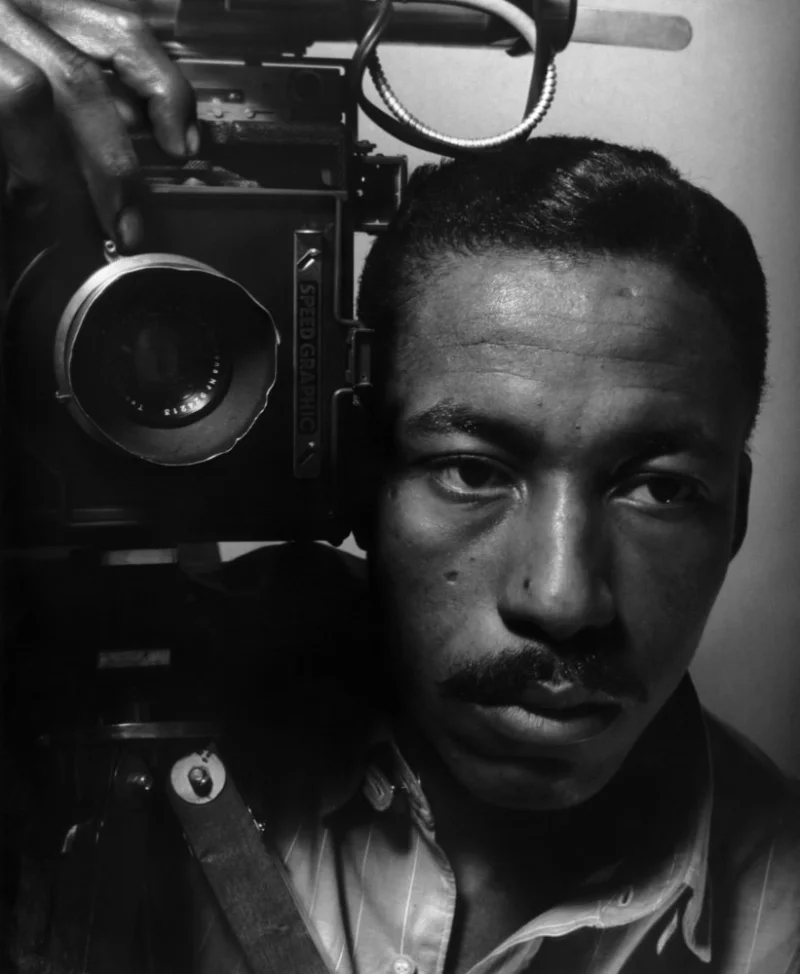Short Summary
Gordon Parks was an American photographer, musician, writer, and film director, renowned for his pioneering work in photojournalism and film. He is best remembered for his photographic essays for Life magazine and for directing the iconic film "Shaft" in 1971. Parks used his camera as a weapon against poverty, racism, and social injustice, capturing poignant and powerful images that left a lasting impact on both the art world and society at large. His multifaceted career broke barriers and set new standards in both photography and cinema.
Early Life & Education
Gordon Parks was born on November 30, 1912, in Fort Scott, Kansas, the youngest of 15 children in a family facing severe economic hardships and racial discrimination. After his mother's death when he was 14, Parks moved to St. Paul, Minnesota, where he lived with a sister and struggled with poverty and racism. His formal education was limited, as he was forced to drop out of high school. Despite these challenges, he cultivated a love for music and photography, learning the latter on his own with a used camera he purchased after being inspired by photographs in a magazine.
Career Highlights
Parks began his career as a self-taught photographer and gained initial recognition for his photographic work focusing on the African American experience. In 1948, he became the first African American staff photographer at Life magazine, where he produced a series of powerful photo essays. Transitioning into cinema, Parks directed "The Learning Tree" in 1969, making him one of the first African American filmmakers to direct a major Hollywood film. His subsequent work on the film "Shaft" in 1971 brought him widespread acclaim and solidified his influence in the film industry.
Major Achievements
- First African American staff photographer at Life magazine, where he documented social issues.
- Directed "The Learning Tree," one of the first major studio films by an African American director.
- Directed "Shaft," a groundbreaking film that became a cultural phenomenon.
- Received numerous awards for his work, including the National Medal of Arts in 1988.
- Authored several books, including his autobiography "A Choice of Weapons."
Famous Quotes
- "I picked up a camera because it was my choice of weapons against what I hated most about the universe: racism, intolerance, poverty."
- "The subject matter is so much more important than the photographer."
Interesting Facts
- Parks was also a talented musician and composed music for his films.
- He was the first African American to work as a director for a major Hollywood studio.
- Parks' work is included in the permanent collections of major museums worldwide.
- His film "Shaft" helped popularize the genre known as Blaxploitation.
- Parks was a co-founder of Essence magazine, a publication focusing on African American women.
Legacy / Influence
Gordon Parks' legacy is profound, as he broke racial barriers and helped pave the way for future generations of African American artists and filmmakers. His work in both photography and film continues to inspire and challenge societal norms. Parks used his art to advocate for civil rights and social justice, leaving an indelible mark on American culture and the arts. His life and work serve as a testament to the power of creativity in effecting change.
FAQ
Q: Why is Gordon Parks famous?
A: Gordon Parks is famous for his groundbreaking work as a photographer and film director, particularly for his photojournalism work with Life magazine and directing the film "Shaft."
Q: What were some of his major achievements?
A: Parks was the first African American staff photographer at Life magazine, directed "The Learning Tree," and received the National Medal of Arts, among other accomplishments.
Q: What impact did he have on the film industry?
A: Parks was one of the first African American directors in Hollywood, influencing the industry with films like "Shaft," which opened doors for future filmmakers of color.











